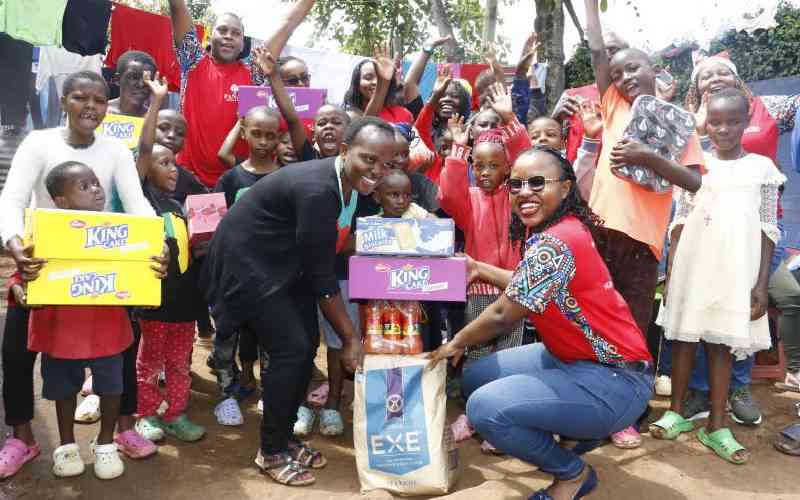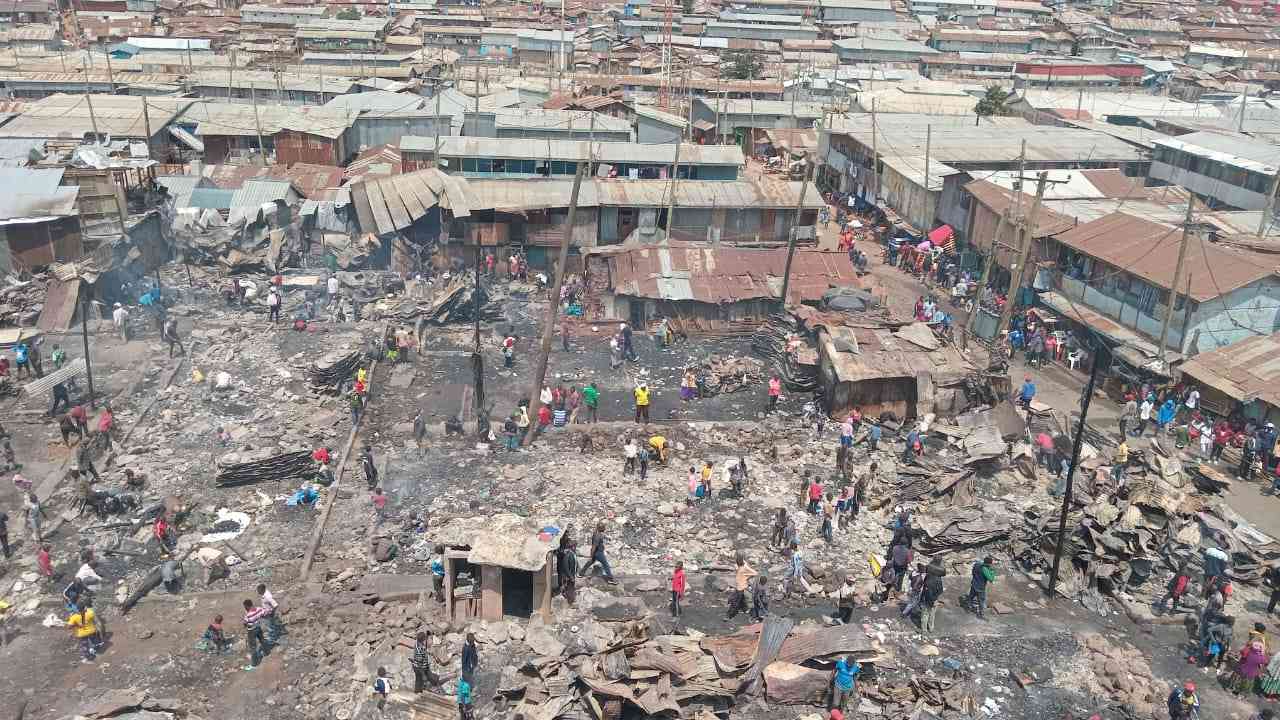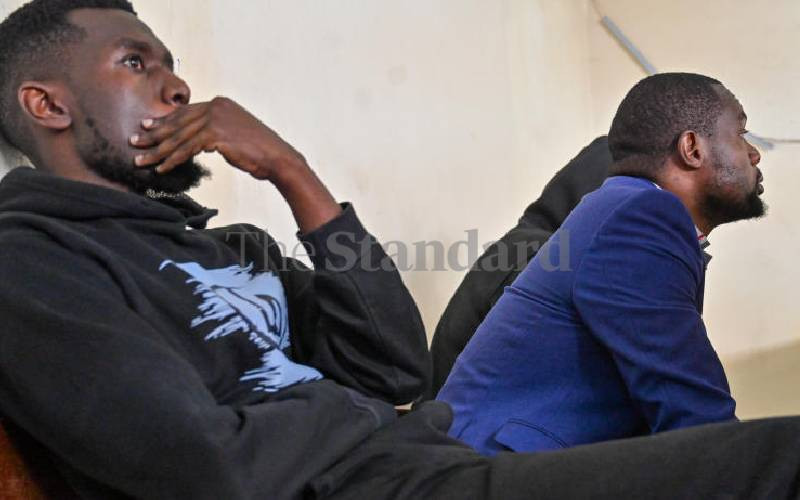Nairobi; Kenya: Imagine a laundromat in a slum area that charges only Sh250 per nine kilogramme load? One where you can have a cup of brewed coffee, take a hot shower and even access a resource centre for internet or training while your clothes are being washed and dried?
What started off as a film shooting expedition in Kibera has evolved into a life line for residents living around the Katwekera area.
Connie Nielsen, the actress famous for her roll in Gladiator was in Kibera shooting the film Lost in Africa when the idea to provide the slum’s residents with basic conveniences like clean water and lavatories was mooted.
That was in 2010. Four years later, Nielsen has built a centre, right behind Olympic Primary School, that has been in operation for 89 days, as of writing this story.
Dubbed the ‘Human Needs Project’, the centre provides more than access to clean water and toilets.
The centre has a 281-metre deep borehole with the capacity to provide 20,000 litres of water per hour.
The project has a cyber cafe, a sacco, a green market place and a coffee shop is also considering introducing solar lanterns, alternative heating fuel and self-adjusting reading glasses in future.
Water from the borehole has excess fluorine content and has to be filtered before use. Davis and Shirtliff, one of the partners of this project, has provided a deflourination and water recycling system.
RECYCLED WATER
The system uses a special filtration resin called activated alumina, which is a strong fluoride absorbent. Raw water is pumped from the borehole to an initial water storage tank.
From here, the water is then pumped through a pair of sand filters and chlorinated to guard against possible contamination.
This system reduces the flourine levels from 4.9 miligrammes per litre to 0.9 miligrammes, against a Kenya National Bureau of Statistics (KNBS) maximum of 1.5 miligrammes per liter concentration.
This clean water is then solar heated and stored in four large solar boilers for shower.
Water from the bathrooms, laundry, and kitchen is recycled and used to flush the toilets.
Matt Woll, an engineer from Questa Engeneering in the US, says sewer water is recycled using the plavel system. “The method employs the use of plastic from drinking water bottles and gravel. “Fortunately, plastic can be provided freely in Kenya but has to be bought in the US,” he says.
Stay informed. Subscribe to our newsletter
“The major advantage this method has is that the plastic bottles, which we cut and put inside a netting, allows for the bio-film to grow evenly on the surface of the plastic. Then gravel of different sizes is used for further purification of the water.”
The recycled product is only used to wash cars and water the field at Olympic Primary School, where there is a plan to grow trees and build more toilets. The recycled water is yet to be tested to find out if it’s fit for human consumption.
The Human Needs Project can handle 1,200 people per day, but is still not operating at its full capacity yet. Juliet Mubone, the project manager, says the use of the showers and toilets have been taken up actively, with ‘rush hours’ in the mornings and evenings. This capacity is against an approximated population of 150,000 residents in the Katwekera area.
“So far, the statistics show that we are receiving about 1,000 to 1,200 men a week for the use of showers and toilets.
ACCESS THE INTERNET
Women are still slow in taking up the facilities, with approximately 300 of them using toilets and showers and between 95-120 using the laundry on a weekly basis.
“This is still way below the capacity,” says Juliet.
The facility opens its doors at 5 am and closes at 9 pm. The resource centre offers free capacity building on entrepreneurship, and enables residents to access the internet.
But the project implementers are perplexed on why the uptake of the facility is still low for women compared to men.
“We made the bathroom area child-friendly, such that a woman can come in and wash her baby. For some reason, the uptake is still low among them. The children, especially teenagers, use this facility more during the holidays,” adds Juliet.
All these services are offered at a minimal cost, with Sh12 for a shower and Sh7 to use the toilet.
The four solar boilers installed can supply hot water for 16 hours straight. Electricity from the national grid is supplemented by the use of generators.
After a guided tour by Dominic Ogembo, it was time for us to try the coffee.
It Is brewed alright, and of the standard that you would get at any coffee shop in Nairobi, complete with toasted cheese and ham sandwiches.
Juliet tells us that at the moment, school going children are allowed to use the toilets for free. The facility is currently operated on donor funding.
But Judith is optimistic that once the facility begins to operate at maximum capacity, it should be able to sustain itself and generate a handsome income.
 The Standard Group Plc is a
multi-media organization with investments in media platforms spanning newspaper
print operations, television, radio broadcasting, digital and online services. The
Standard Group is recognized as a leading multi-media house in Kenya with a key
influence in matters of national and international interest.
The Standard Group Plc is a
multi-media organization with investments in media platforms spanning newspaper
print operations, television, radio broadcasting, digital and online services. The
Standard Group is recognized as a leading multi-media house in Kenya with a key
influence in matters of national and international interest.
 The Standard Group Plc is a
multi-media organization with investments in media platforms spanning newspaper
print operations, television, radio broadcasting, digital and online services. The
Standard Group is recognized as a leading multi-media house in Kenya with a key
influence in matters of national and international interest.
The Standard Group Plc is a
multi-media organization with investments in media platforms spanning newspaper
print operations, television, radio broadcasting, digital and online services. The
Standard Group is recognized as a leading multi-media house in Kenya with a key
influence in matters of national and international interest.








